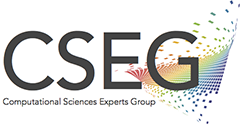CSEG offers a comprehensive range of consulting services ranging from engineering simulation to market research. Engineering simulation consulting services include complete vehicle powertrain fuel economy modeling to individual sub-systems performance using commercial software tools and in-house tools.
Vehicle Level 1D Modeling
 CSEG’s vehicle level modeling service speeds up your ability to iterate and refine your designs. The vehicle level modeling is primarily performed using CSEG’s own PowertrainLive ®, a Simulink based vehicle level model which can either be forward looking or a backward-hybrid looking depending on the problem statement and the amount of data available.
CSEG’s vehicle level modeling service speeds up your ability to iterate and refine your designs. The vehicle level modeling is primarily performed using CSEG’s own PowertrainLive ®, a Simulink based vehicle level model which can either be forward looking or a backward-hybrid looking depending on the problem statement and the amount of data available.
Vehicle level modeling allows you to assess the improvement in a component or a control strategy at the vehicle level. A robust vehicle level model is normally only possible for the OEM who has access all of the complex vehicle data needed for such a model. CSEG has developed a robust vehicle level model pre-populated with real world vehicle data from multiple public and proprietary sources that allow Tier 1s and other manufacturers to have this same flexibility. The most promising use of this technology is to evaluate the fuel economy and emissions impact of a particular technology at the vehicle level on a specific vehicle under various different drive cycles. 

*Above figure shows correlation of CSEG’s PowertrainLive simulation data in close agreement with 2012 Ford F-150 UDDS hot start test data. This test data is from the Downloadable Dynamometer Database and was generated at the Advanced Powertrain Research Facility (APRF) at Argonne National Laboratory under the funding and guidance of the U.S. Department of Energy (DOE)”
Thermal Management 1D Modeling

CSEG’s thermal management simulation services include modeling the complete vehicle thermal management system including engine cooling system, engine oil system, transmission oil system and the front-end heat exchanger pack. The models are created a varying degrees of fidelity depending on the objective of the simulation. The model is typically capable of predicting transient system behavior simulation including thermal transient phenomenon under aggressive transient cycles and extreme cold ambient conditions. These models are developed either in Flowmaster, GT-Suite, Amesim or other commercial tools that are requested by the customer. CSEG also can co-simulate these models with Simulink for control strategy development or with vehicle level models to integrate interdependence of vehicle parameters such as engine friction and accessory loads.
Engine 1D Modeling

CSEG also provides detailed engine modeling using commercial off-the-shelf-tools such as Ricardo Wave® and GT Power ® from simple mean value models to complex turbulent flame models depending on the application. The engine models have also been co-simulated with vehicle thermal management models to account for the effect of engine warm-up on engine performance. Other examples of engine level modeling include the effects of air charge temperature, spark timing, fuel enrichment, cylinder wall temperature, boost pressure, and engine back pressure on fuel economy and emissions.
Plant Model Development
 CSEG has been working with aerospace and automotive companies in developing physics based plant models of various sub-systems such as fuel systems and ECS systems in Simulink. The goal of the Simulink plant models is to translate and upgrade proven internal codes which are aging fast in terms of GUI, and the programming language it was written in. An easy to use GUI Simulink based plant model enables your company to keep its proprietary computational correlations and capability and still protect from obsolescence. In addition, the Simulink plant model provides easy integration with system controls for controls development using a model-in-the-loop approach.
CSEG has been working with aerospace and automotive companies in developing physics based plant models of various sub-systems such as fuel systems and ECS systems in Simulink. The goal of the Simulink plant models is to translate and upgrade proven internal codes which are aging fast in terms of GUI, and the programming language it was written in. An easy to use GUI Simulink based plant model enables your company to keep its proprietary computational correlations and capability and still protect from obsolescence. In addition, the Simulink plant model provides easy integration with system controls for controls development using a model-in-the-loop approach.
Market Research
 CSEG has partnered with Como Research to provide in-depth market research on hard to research industrial markets. This market research is a perfect complement to the system level modeling team as the information can provide details on the technology maturity cycle, competitive landscape, customer perception, trade-offs and maintenance. Market research on technology combined with technical assessments at a vehicle level gives customers a complete assessments of technologies under review.
CSEG has partnered with Como Research to provide in-depth market research on hard to research industrial markets. This market research is a perfect complement to the system level modeling team as the information can provide details on the technology maturity cycle, competitive landscape, customer perception, trade-offs and maintenance. Market research on technology combined with technical assessments at a vehicle level gives customers a complete assessments of technologies under review.
A recent market study includes an in-depth look into the light duty vehicle space to define and evaluate potential technologies in the waste heat recovery space evaluating the most likely minimally viable package in waste heat recovery for passenger cars and light duty trucks by 2020.
